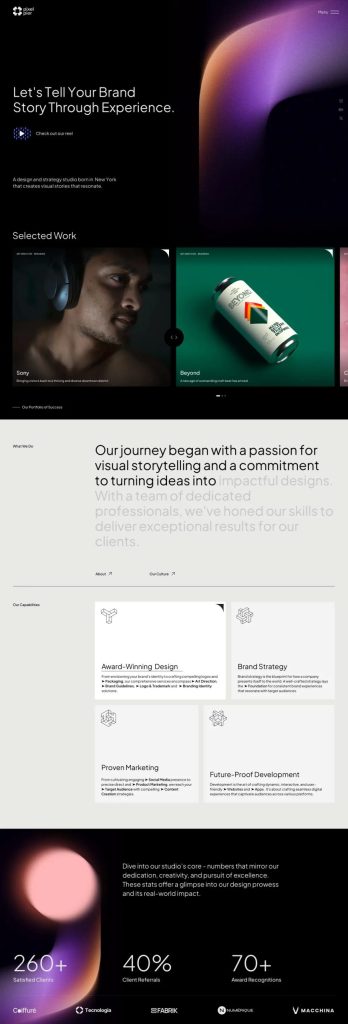As we step into 2024, the pace of advancements in Artificial Intelligence continues to accelerate, with remarkable new releases and developments shaping industries and research landscapes. There are noteworthy new models, integrated tools, specialized technologies, and innovative products that showcase the potential of AI to transform sectors such as healthcare, business automation, and education. This article delves into the latest in AI, spotlighting significant launches like Google Gemini 1.5 Pro, emerging tools, and targeted solutions addressing widespread challenges.
Emerging from Google’s AI research team, the Google Gemini 1.5 Pro has taken the AI landscape by storm with its impeccable capabilities. This large model is widely recognized for its multimodal functionalities, allowing it to process and generate textual, visual, and audio content. The Gemini 1.5 Pro stands out for its extended context understanding, with the ability to analyze inputs from diverse modalities, thereby providing a richer interaction experience. According to a blog post from Google AI (2024), the model is touted to enhance AI-driven applications across sectors, enabling more coherent communication between systems and users. Such improvements pave the way for more intuitive customer support services, personalized content delivery, and smarter virtual assistants.
Notably, Companies like OpenAI have also announced updates to their flagship models, emphasizing improvements in incorporating external knowledge bases and enhancing decision-making processes in real time. These advancements indicate a shift towards more context-aware AI solutions, ready to tackle intricate tasks without necessitating extensive human intervention.
Another significant trend in the AI landscape is the emergence of advanced tools and APIs that promise to integrate better with existing infrastructure to enhance workflows across industries. A leading example is AWS’s recently launched suite of AI services, designed to streamline workflows across sectors like healthcare, finance, and retail. These services make use of interactive data analysis tools which empower teams to conduct real-time analytics and derive insights with minimal effort. As noted in a detailed report by TechCrunch (2024), the introduction of these tools can significantly improve data-driven decision-making processes, helping organizations respond swiftly to market changes or operational challenges.
Furthermore, industries are beginning to embrace cognitive development in machines to automate knowledge management, providing solutions that reduce the cognitive burden on human workers. Tools such as Microsoft’s Azure Cognitive Services, designed to automate routine tasks and manage knowledge efficiently, are creating new avenues for operational excellence. These APIs offer seamless integration with business applications, allowing for automated workflows that enhance productivity metrics while minimizing errors, a boon for companies across various sectors.
The quest for reliable and de-biased large language models (LLMs) is another pivotal focus for researchers and developers in 2024. Startups like Eleuther AI are leading the charge with their enhanced proprietary models, which emphasize robustness and fairness in AI outputs. As outlined in a 2024 report by Wired, these models are trained using diverse datasets and fine-tuned to respect ethical guidelines, promoting inclusivity and neutrality. This movement towards less biased models is paramount, especially in sectors such as healthcare, where biased algorithms can lead to unequal treatment outcomes. The integration of such technologies holds potential for fairer resource allocation, leading to enhanced healthcare delivery.
Emerging technologies specifically designed for specialized use cases are also gaining traction. For instance, advancements in AI-driven diagnostic tools have become increasingly vital in healthcare settings. Companies like Zebra Medical Vision have developed sophisticated AI algorithms capable of interpreting medical imaging with remarkable accuracy. A study published in the Journal of AI in Medicine (2024) validates the effectiveness of these technologies in supporting radiologists, ultimately leading to quicker diagnoses and improved patient outcomes.
Moreover, enterprise solutions fueled by AI are reshaping business automation landscapes. Salesforce has unveiled its Einstein GPT, which delivers advanced analytics and prediction capabilities tailored to customer relationship management (CRM). This system can automate knowledge management by synthesizing large volumes of customer data to provide actionable insights. As emphasized in the Financial Times (2024), such systems allow sales teams to prioritize leads effectively and personalize outreach strategies, significantly advancing efficiency and customer satisfaction.
In the realm of cybersecurity, AI has made significant strides, with products tailored to combat increasingly sophisticated threats. IBM’s Watson for Cyber Security now utilizes advanced threat intelligence combined with AI to analyze vast datasets for early detection of cybersecurity threats. Not only is it capable of identifying anomalies in data patterns, but it also automates responses to ensure rapid remediation. As cybersecurity risks grow more complex, this advanced integration of AI represents a proactive step in safeguarding organizations’ digital ecosystems.
The creative industry has also witnessed innovation driven by AI advancements. Tools like Adobe’s Sensei leverage AI to facilitate user-friendly design processes, allowing creators to produce content rapidly. With support from AI algorithms, designers can harness predictive analytics to understand trends and consumer behavior, resulting in tailored marketing campaigns and engaging creative output. The impact of such advancements is profound, as they empower creative professionals to focus on imaginative aspects while AI manages repetitive or technical tasks.
While these advancements hold incredible promise, the ethical implications of AI technologies remain an ongoing dialogue. The rapid evolution of AI requires stakeholders to address concerns such as data privacy, algorithmic bias, and long-term socio-economic impacts to ensure responsible development. With calls for transparency and accountability in AI systems growing louder, organizations must develop governance frameworks to ensure AI applications are utilized respectfully and sustainably.
In conclusion, the AI landscape in 2024 is defined by groundbreaking innovations, expanded capabilities, and an increasing push towards ethical development. With emerging models like Google’s Gemini 1.5 Pro leading the charge, alongside robust tools and specialized technologies addressing critical needs, the potential applications span various industries, from healthcare to cybersecurity and beyond. As automated knowledge management systems gain ground, and interactive data analysis tools reshape workflows, the future looks promising — provided the ongoing ethical concerns around these emerging technologies are adequately addressed. The journey towards a deeper integration of AI in everyday applications marks a revolutionary step forward in how we engage with technology and analyze the information at our disposal.
Informed companies that understand AI’s trajectory and possibilities can harness these advancements to remain competitive in an ever-evolving landscape.
### Sources:
– Google AI Blog (2024). “Introducing Gemini 1.5 Pro: The Next Generation of AI.”
– TechCrunch (2024). “AWS Unveils Suite of AI Services for Business Transformation.”
– Wired (2024). “The Imperative of De-biased AI in Healthcare.”
– Journal of AI in Medicine (2024). “The Effectiveness of AI in Medical Imaging.”
– Financial Times (2024). “Salesforce’s Einstein GPT Revolutionizes CRM.”
– IBM (2024). “Watson for Cyber Security: The Future of AI in Cyber Threat Protection.”
– Adobe (2024). “Revolutionizing Creativity with AI Innovations in Adobe Sensei.”





























